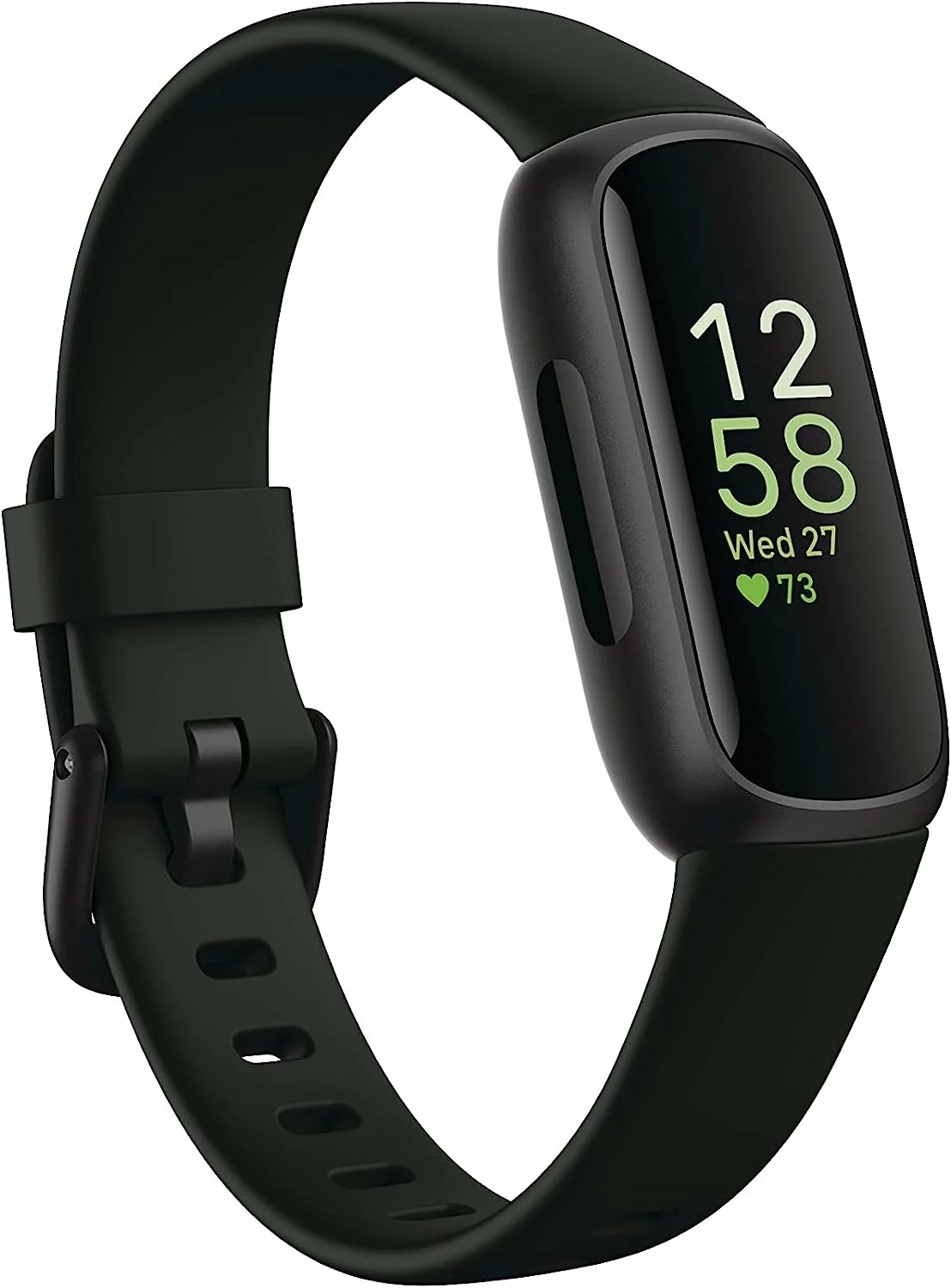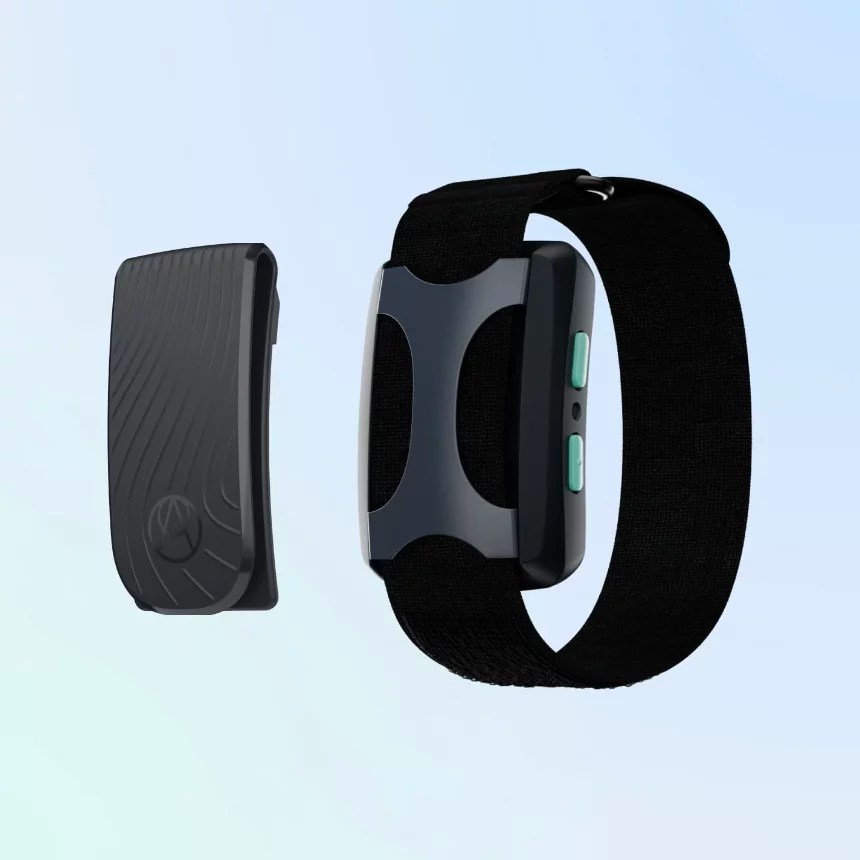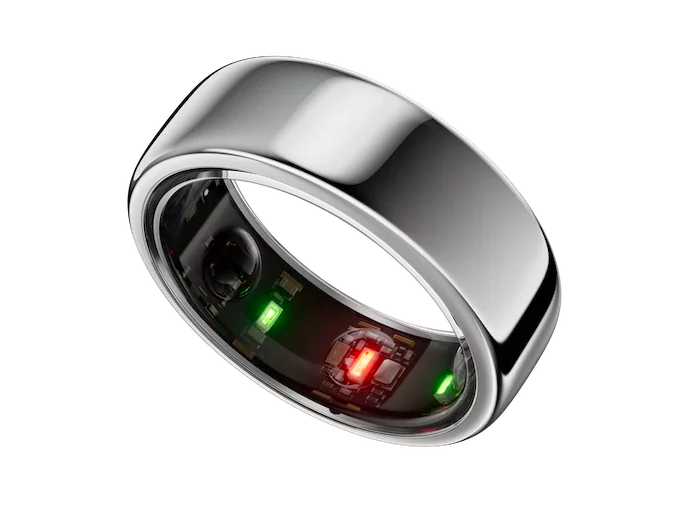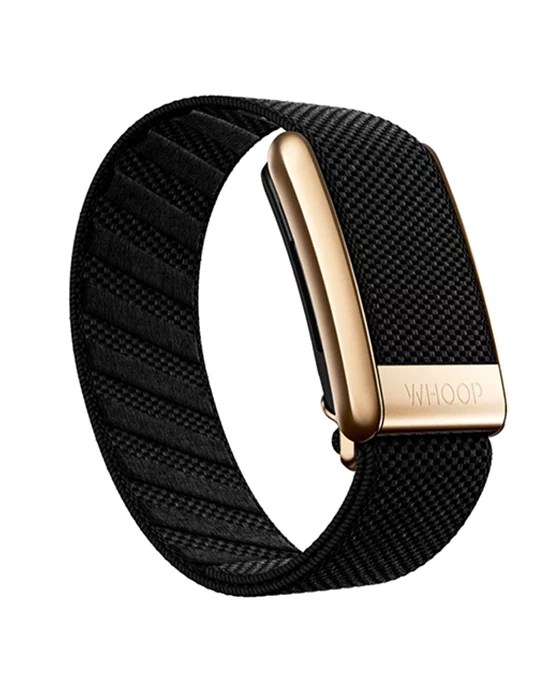

The perfect sleeping scenario would look something like this: Crawl into bed, set your alarm (or don't) and fall asleep immediately, no sheep-counting or melatonin necessary. But the reality is that many folks struggle to successfully fall—and stay— be it due to sleep anxiety, spiraling thoughts, or one-too-many cups of Joe.
Whether it's the act of drifting off or sleeping soundly through the night, one of the best ways to build better sleeping habits is by using a sleep tracker. Coming in all forms and sizes, sleep wearables have ballooned in popularity in recent years for their ability to track metrics like sleep quality, snooze duration, restlessness, breathing, more. While these trackers can't physically make you fall asleep, the soothing haptics they deliver can soothe you. More importantly, the biometrics most collect can help you create a personalized bedtime routine that actually recharges your batteries, not drains them even more.
From rings to watches to smart headbands, the world of sleep trackers is wide. To see which ones are worth bringing home (and which ones you can hit "snooze" on), we went to bed with five popular wearables to see how they impacted our sleep. Here's how they stacked up.
Alexis Reliford, director of social media
Device tested: Fitbit Inspire 3

“As a true night owl, I have a terrible relationship with sleeping. I’m no stranger to staying up late, only to regret it the next morning when I’m hitting snooze multiple times. In an effort to improve my sleep habits in 2023, I tried the Fitbit Inspire 3 and was pleasantly surprised with the results. The Fitbit Inspire 3 not only tells me how long I sleep and how long it took me to fall asleep, but it also analyzes the quality of my sleep and produces a “sleep score” (daily) and “sleep animal” (monthly) based on my sleep behaviors.
I discovered that I’m a Hedgehog, which means I tend to fall asleep later and wake earlier, and am overall a lighter sleeper. Seeing poor sleep scores (less than 60 on scale of 1-100) in the first few weeks was a jarring reality check that helped me adjust my daily routine in an effort to get more quality sleep. I try to go sleep before 10 p.m., have nixed afternoon naps, and have cutback on caffeine in the afternoons. Good news: I’ve already started to see improvements, and have had a few Fair (60-79 score) and Good ( 80-89 score) nights.”
Pros:
- Tracks sleep as well as health, fitness, and overall wellness
- Minimal design
- Affordable
- Smartphone compatible
Cons:
- Not as comprehensive as other sleep-specific wearables
- Some report glitches
Hannah Schneider, health writer
Device tested: Garmin Venu S

Originally $400, now $300
“I’ve used the Garmin Venu S for a couple of years on and off, though wearing it all the time is not conducive to my lifestyle (I’m always losing charger cables). Garmin watches are really good for accurate reads in my experience. I also love the breadth of data that they track.
So for example, it tracks how much light, REM, and deep sleep I get, and it also tracks respiration and oxygen while you sleep. You can check out the app in the morning to see all of those graphs together, and it’s really interesting. I have asthma so I find it super useful to check how my breathing affects my sleep quality throughout the night (surprise, it tanks my sleep quality). I also find that I can assess if I am having asthma symptoms in my sleep without realizing it based on my respiration and sleep quality, too. The battery is reliable as well. Cons are that the watches are an investment and if I wear it too often and check the data too regularly, it can give me some health anxiety, so I try to maintain balance.”
Pros:
- Comprehensive sleep tracking
- Also tracks health, fitness, and general wellness
- Equipped with outdoor-recreation features and GPS
- Smartphone compatible
- Up to 10 days of battery life
Cons
- Expensive
- May be bulky for some
Amelia McBride, editorial assistant
Device tested: Apollo Neuro

“The Apollo Neuro is one of the latest-and-greatest wearables that claims to reduce stress via touch therapy, acting like a “wearable hug” for your nervous system. Its vibrations are supposed to reset your fight or flight response, thereby helping you focus more and sleep better. The brand just announced the successful completion of a double-blind study from the University of Pittsburgh on the device’s impact on the heart-rate variability of student athletes, which concluded that soothing vibrations could have a positive impact on recovery from physical stressors. With the device’s newness in mind, I was eager to give it a try.
Setup was easy enough: charge the device with the USB cord provided, download the Apollo app, and use Bluetooth pairing to sync the device to your phone. From there, you can select a timed vibration mode from seven different options, all created for different scenarios like sleeping, social gatherings, and meditation. You’re able to control the intensity in-app as well as on the device in case the vibrations become too distracting. The device comes with two adjustable bands for your wrist and ankle as well as a clip that can be attached to your waistband or your shirt.
The band is super comfortable, and after a few hours, I forgot it was even there. I decided to use the device’s “Clear and Focused” mode during work and the “Sleep and Renew” mode right before bedtime. During work, I caught myself unintentionally breathing in tandem with the vibration pattern of the device. I’ve always known that rhythmic breathing can help you calm down, but don’t practice it as much as I should, so it was nice to catch myself doing it without trying.
I also noticed that the low vibrations of the Apollo Neuro made me feel less fidgety. As an adult with ADHD, I tend to be pretty restless while trying to focus. I usually end up bouncing my leg, tapping my fingers together, or biting my lip during work hours, but the Neuro’s vibrations seemed to replace my impulse to stim. At night, I did feel pretty comforted by the waves of vibration, and found it helped lull me to sleep. The decrease in my impulse to stim was an unexpected bonus. And while I did feel less stressed after wearing it, I theorize that my measured breathing played a huge role in it.”
Pros:
- Therapeutic wearable rooted in mindfulness
- Can be used for stress, sleep, performance, and socializing
- Comfortable band
- Easy to set up
Cons
- Expensive
- Doesn’t offer biometric tracking and comprehensive sleep “scores”, which can be confusing for those shopping for a sleep wearable
Kayla Hui, commerce writer
Device tested: Oura Ring

“As someone who has a hard time falling asleep at night, the Oura Ring has been a godsend ever since it was introduced to my life. Using light and light sensors, the ring measures my heart rate and body temperature to garner information about how I sleep. Once I wake up in the morning, the app—which is connected to the ring—delivers a sleep score, from 0-100. The lower the score, the worse quality of sleep and vise versa.
When I first started using the ring, I’d receive sleep scores between the 50s and 60s—which are on the lower end—when falling asleep around 2 a.m. However, since using the ring for several months, my scores have increased to the 70s and 80s range. I’ve become more cognizant of my sleeping habits and am aware that in order to have enough time in the different stages of sleep, I need to sleep earlier. This helps me to hit the hay sooner and make time for powering down.
What’s great about Oura is that it delves deep into your sleep quality, analyzing the time spent in the various stages of sleep: REM, light, and deep. It also tracks your movement using a line system; the higher the line, the stronger the movement. As a sweaty sleeper, I love that the ring is waterproof and find that the ring doesn’t bother me when I sleep. I also appreciate how dainty the ring is; I can barely feel it on my skin.
I’ve been using the Oura Ring for nearly a year now and can’t sleep without it. I wake up each day satisfied knowing how much rest I’ve gotten, how long it took me to fall asleep, and how many hours of sleep I get in various stages of sleep. While heftier in price, the Oura Ring’s metrics are accurate and reliable, so it’s not a wearable you’ll want to snooze on. Pinky promise.”
Pros
- Comprehensive sleep tracking
- Also offers general wellness tracking for optimum rest and recover
- Lightweight
- Doubles as jewelry
- Shares sleep data via an app
Cons
- Expensive
- Requires a subscription
LeAura Luciano, contributor
Device tested: Whoop 4.0

Subscriptions start at $399/2 years or $30/month
“I initially got my Whoop to help with my training and recovery, but it came in clutch when I started having sleep issues. Between traveling for work in different time zones and trying to level up my lifting sessions, I quickly realized I needed to improve my sleep health. Whoop is very detailed regarding insights for physical activity, sleep, and recovery.
The Whoop 4.0 uses various sensors and data points to track your sleep, including heart rate variability, respiratory rate, and movement. It provides you with a Sleep Score based on your time in bed, the amount of deep and REM sleep, and how long it took you to fall asleep and wake up. Using this data helps to identify patterns in your sleep, such as if you’re consistently getting enough deep sleep or waking up frequently during the night.
One of the standout features is the Whoop Sleep Coach, which gives you personalized recommendations to help improve the quality of your sleep and maximize recovery. The Sleep Coach helps determine your optimal sleep and wake times based on your daily performance goals. The Suggested Time to Bed is recommended based on your Recommended Time in Bed, Sleep Performance Goal, and desired wake-up time. The Sleep Performance Goal has three levels: ‘Peak’, ‘Perform’, or ‘Get By’, which correspond to achieving different percentages of total sleep needed.
Occasionally, I would select ‘Get By’ when jet-lagged from traveling and had a light day. However, I wanted to ensure I was hitting ‘Perform’ and ‘Peak’ levels of sleep for the days when I was physically active.
Whoop also provides haptic alerts that allow you to customize your wake-up time based on your desired goals. With overall awareness of the components of my sleep health, by implementing small changes, even imperfect ones, I was able to improve my overall sleep quality.”
Note: The WHOOP 4.0 comes at no cost (onyx band included), and the membership is $30 a month for those who opt to pay month-to-month, with an annual option as well.
Pros:
- Comprehensive sleep tracking
- Designed for fitness with comprehensive health/wellness tracking for optimized recovery and performance
- Shares sleep data via an app
- Lightweight and comfortable
Cons:
- Expensive
- Requires a subscription
Loading More Posts...
